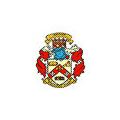Studies & Degrees in Telecommunications Engineering
Choose where you would like to study Telecommunications Engineering:
ArgentinaAustraliaChileColombiaEcuadorHondurasIndiaItalyJapanMexicoPeruSpainThe United KingdomThe United StatesVenezuelaTelecommunications Engineering Study Programs
Telecommunication is the sending of communications over distances with the use of certain devices. These devices can be as crude as drums or smoke signals but today we prefer to use electronic equipment like computers, radio, telephones or televisions. Some of the pioneers who made telecommunication easier are Samuel Morse, Alexander Graham Bell and Guglielmo Marconi. It plays a very important part in the world economy that the revenue in this industry is estimated to be more than one trillion U.S. Dollars.
Telecommunication or Telecom Engineering is a big part of electronic engineering. People in this profession have lots of jobs to choose from but basically it involves the design and supervision of equipment and facilities like telephone companies. As a discipline, it also includes other fields as well such as civil, electrical, electronic and structural engineering. Aside from that, the job requires some people skills, basic knowledge of accounting and plenty of project management. They are responsible for providing the ways and means to get the best telephone and data services at the lowest possible price for customers at the least cost for the company. A telecom engineer can work either in a managerial capacity or focused mainly in the application of technical knowledge. These positions are available in the areas of computing technology, the Internet, networking, television and radio. Managerial positions includes planning and managing projects, ensuring that it be completed within the budget and time allotted and based upon the quality standards agreed upon. Those using their expertise will design or provide solutions and technical guidance to others. Companies’ constant demand for the best solutions at the lowest possible cost has resulted to some innovative solutions. Some of these solutions are the use of fiber optic cables for telephone lines to replace the old copper wires and the use of wireless technology.
We can classify these engineers into three types. First are the telecom equipment engineers. They design the equipment including modems, routers, switches and any device designed to be for communication. Second are the central-office or plant engineers. They design and supervise the installation and use of the equipment in the central office, wire center or telephone exchange. It is also their responsibility to upgrade existing networks, assigning equipment location and determining the amount of logistics needed. Last but not the least is the outside-plant or field engineer. In contrast to the first two, these engineers spend most of their work time outside. They are the ones who design and set up telephone poles or cellular towers. Since their job requires them to interact with the local authorities, other utilities and even customers, they are the face and voice of the company.
While new technologies in this field are rapidly replacing the old ones, the demand for telecommunication engineers could only continue to rise. The Internet is getting more pervasive in our daily lives, computer networks are getting more sophisticated and wireless technology is quickly being adapted and used in virtually every country in the world. With these developments in telecommunication, one could make an exciting and rewarding career in this field.



